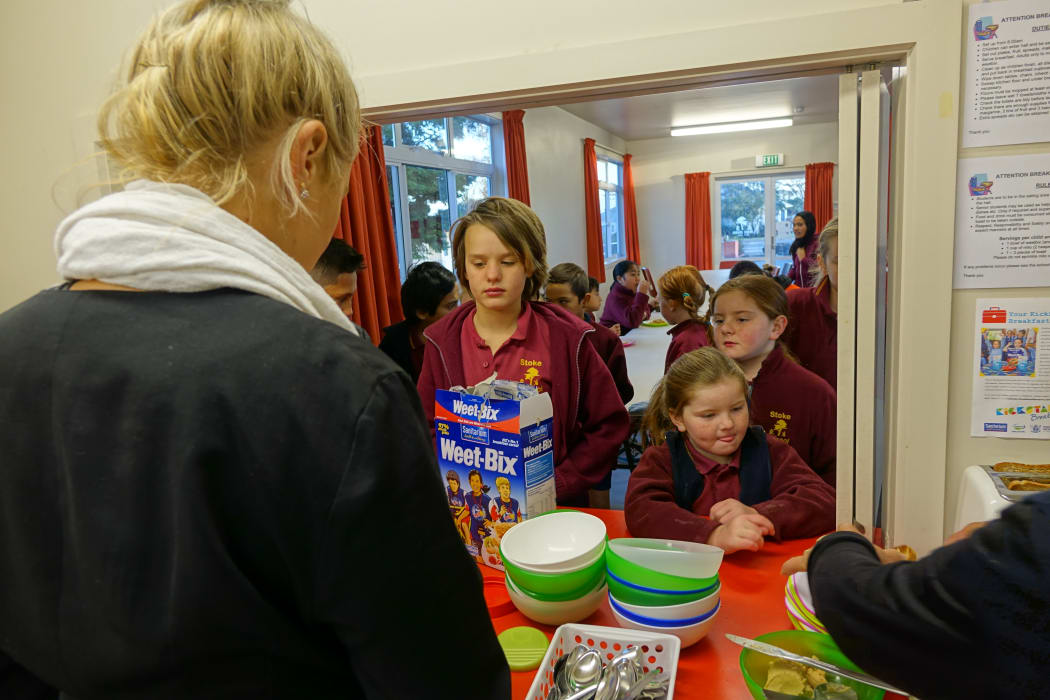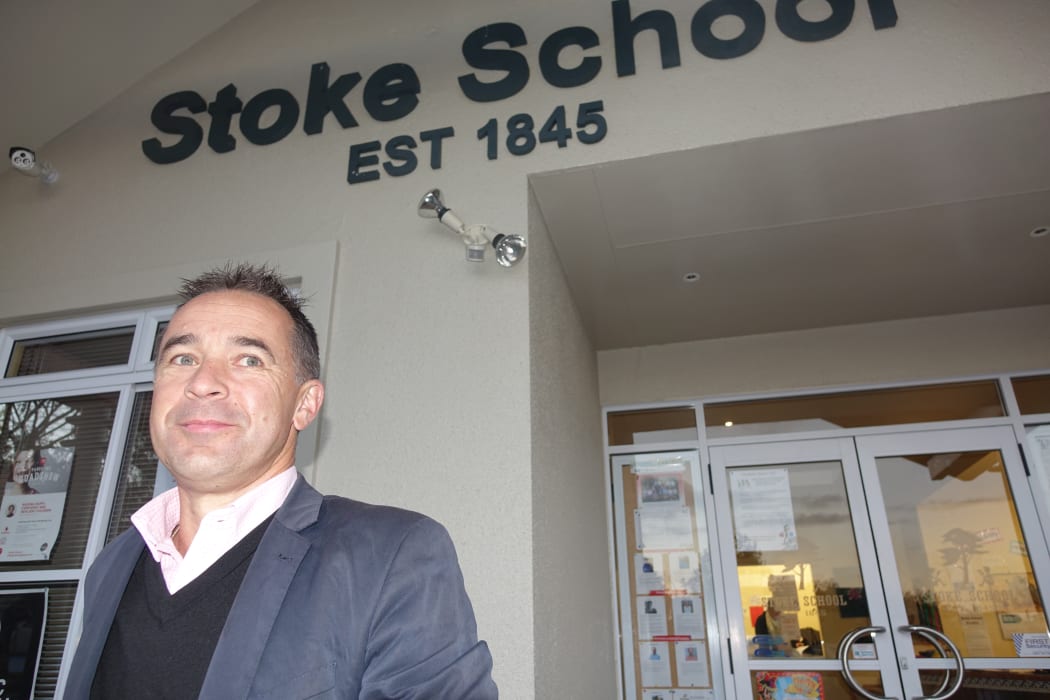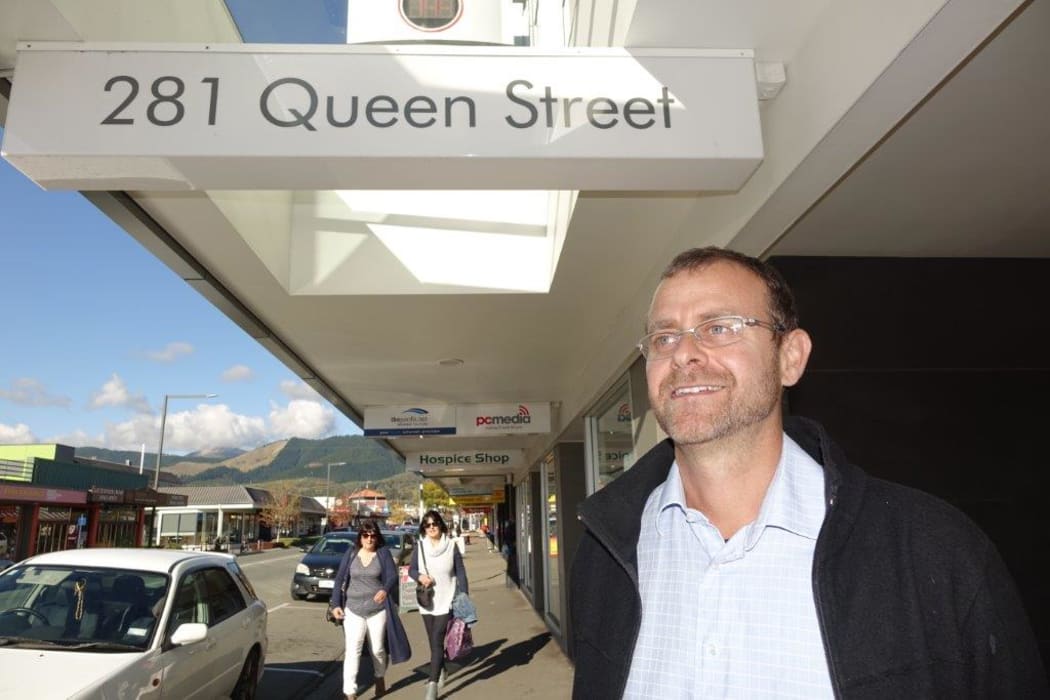Middle-income families in Nelson, as well as those on low incomes, are struggling to make ends meet, a Child Poverty Action Group (CPAG) meeting has heard.

Breakfast club queue: Pupils at Stoke School line up for breakfast, provided free with the help of sponsorship and volunteers. Photo: RNZ / Tracy Neal
The group held a post-Budget meeting in Nelson, where it was revealed that local agencies, from the Nelson Food Bank to the Salvation Army, have reported increased cases of hardship among a wider range of families.
The agencies said emerging trends included that the cost of housing was now more than 50 percent of total income for an increasing number of families, the burden of debt repayment was growing, and the cost of food was also becoming an increasing burden for families.
More families were seeking assistance through grants for items such as power bills, firewood and child car seats, they said.
Local schools were also noticing the consequences.
Stoke School - New Zealand's second oldest school, in the suburb between Nelson city and Richmond township - runs a daily breakfast club, where up to 70 students get their first meal of the day.

Stoke School principal Pete Mitchener said students at the school came from varying cultures and a huge range of financial backgrounds. Photo: RNZ / Tracy Neal
School principal Pete Mitchener spoke at the CPAG meeting, and broke down when telling the story of a young student who represented an increasingly typical scenario. The youngster, named "Jack", arrived at school tired and late, having had no place to sleep the night before other than the top of the chest freezer.
The mattress he shared with siblings was not large enough and he had been forced off in the night, and decided the warmth of the freezer top was the next best thing, Mr Mitchener said.
He said the child arrived at school, limping and with no shoes, and had not eaten breakfast and did not have lunch.
Mr Mitchener said students at the school came from varying cultures and a huge range of financial backgrounds. Rising house prices had changed the school's decile rating from two to four, resulting in the loss of $50,000 off its operating grant.
Nelson Marlborough District Health Board principal dental officer Rob Beaglehole said he could map poverty through a child's teeth. He used to think the biggest risk factor for tooth decay was sugar but he now realised it was poverty, he said.

Nelson Marlborough District Health Board principal dental officer Rob Beaglehole Photo: RNZ / Tracy Neal
"The number one reason children are admitted to hospitals is actually to have their teeth taken out under general anaesthetic. It's not uncommon for us to be taking out teeth from kids as young as 18 months - still in nappies," Dr Beaglehole said.
General anaesthetic cost $4000 each time and last year the Nelson Marlborough DHB treated 250 children, he said.
"That's an extremely expensive way of the DHB treating tooth decay. That's the equivalent of about $1 million a year."
'Fundamental changes' needed
Author and film maker Bryan Bruce, who also spoke at the CPAG meeting, said poverty had become increasingly invisible, and it was not until a school principal talked about its realities that people took note.
He said welfare queues were once a measure of poverty, but electronic banking had removed them from sight.
"You had a visible measure of how well our community was doing, or how badly it was doing. We have got no idea about who these people are, what do they look like? How many of there are there?"
There were a lot more good people in the community doing great things, but there were more people now feeling powerless, Mr Bruce said.
"We have to make some fundamental changes about what it means to be a New Zealander, and stop making tax a bad word."
He said globalisation had made the stuff people did not need really cheap, but put the essentials out of reach for many.
Mr Mitchener said they were now also battling the consequences of increasingly transient families. Five had moved from the area in the last term alone, as a result of domestic violence or the cost of living, he said.
He spent hours each week attending family group conferences but did see a solution, he said.
"All schools need support to link families with all the wonderful agencies that are out there before it gets to crisis situation and Child Youth and Family become involved.
"Schools acknowledge their place in developing communities, but rightly, our focus is on developing teaching and learning. We need someone based at our school that will walk alongside our families to connect them with support agencies."
Mr Mitchener said funding a social worker in schools cost $15,000 a year for one day a week, and he believed the government needed to fund that.


